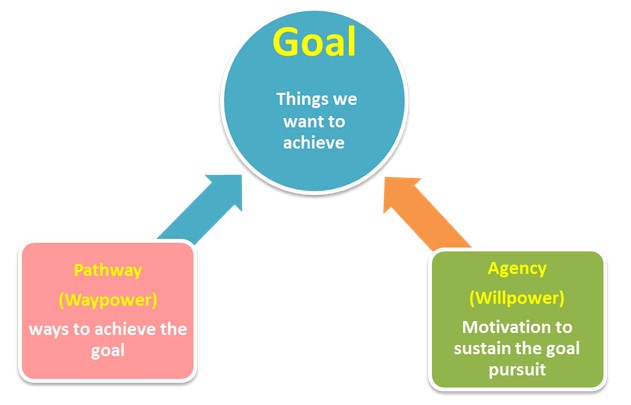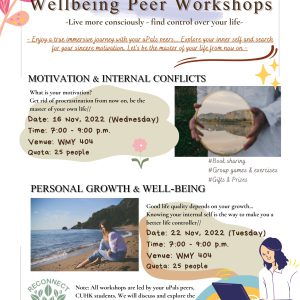Apart from intelligence, ability and motivation, what else can boost your study? Researchers have found that hope can be another factor that contributes to academic success (Bressler et all., 2010).
Hope influences an individual’s confidence in his/her ability which may enhance future accomplishments. According to a distinguished positive psychologist Charles R. Snyder (1991), hope consists of three components, namely goal, agency and pathways. Agency refers to a sense of successful determination in meeting goals in the past, present and future; pathways refer to a sense of being able to generate successful plans to meet goals. In other words, a high-hope person has more will (agency) and ways (pathways) to reach the goal.

Benefits of Hope
Individuals with high hope exhibit the followings:
- Capacity to overcome psychological challenges persistently (Gillham, 2000)
- Better academic performance and higher graduation rate (Snyder et al., 2002)
- Strengthened academic potential (Bressler et al., 2010)
- Ability to clearly conceptualize the goal, act and develop effective ways to accomplish it (Snyder, 1994; Snyder et al., 2002)
- Willingness to connect with other high hope individuals and build strong supportive network (Snyder et al., 2002)
Building Hope
To cultivate hope, you can adapt a goal directed thinking style known as Hopeful Thinking. (Snyder et al., 2002)

Here are some tips for you:
Goal
- What is your goal for this academic term?
- Is it specific and achievable?
Waypower
- What are the possible ways to reach this goal?
- Are they feasible?
Willpower
- What possible obstacles you may face?
- As you view them as challenges, how did you successfully overcome challenges before?
- How to motivate you to sustain your efforts to achieve the goal?
- What contributes to your determination?
Bressler, Linda A; Bressler, Mark E; Bressler, Martin S. (2010). The role and relationship of hope, optimism and goal setting in achieving academic success: a study of students enrolled in online accounting courses. Academy of Educational Leadership Journal, 14(4): 37-51.
Gillham, J. (2000). The science of optimism and hope. Radnor, PA: Templeton Foundation Press.
Snyder, C.R. (1994). The Psychology of hope: You can get there from here. New York: Free Pres
Snyder, C. R., Harris, C., Anderson, J. R., Holleran, S. A., Irving, L. M., Sigmon, S., Yoshinobu, L., Gibb, J., Langelle, C., & Harney, P. (1991). The Will and the Ways: Development and Validation of an Individual-Differences Measure of Hope. Journal of Personality & Social Psychology, 60(4), 570–585. https://doi.org/10.1037/0022-3514.60.4.570
Snyder, C. R., Shorey, H. S., Cheavens, J., Pulvers, K. M., Adams III, V. H., & Wiklund, C. (2002). Hope and Academic Success in College. Journal of Educational Psychology, 94(4), 820. https://doi.org/10.1037/0022-0663.94.4.820






